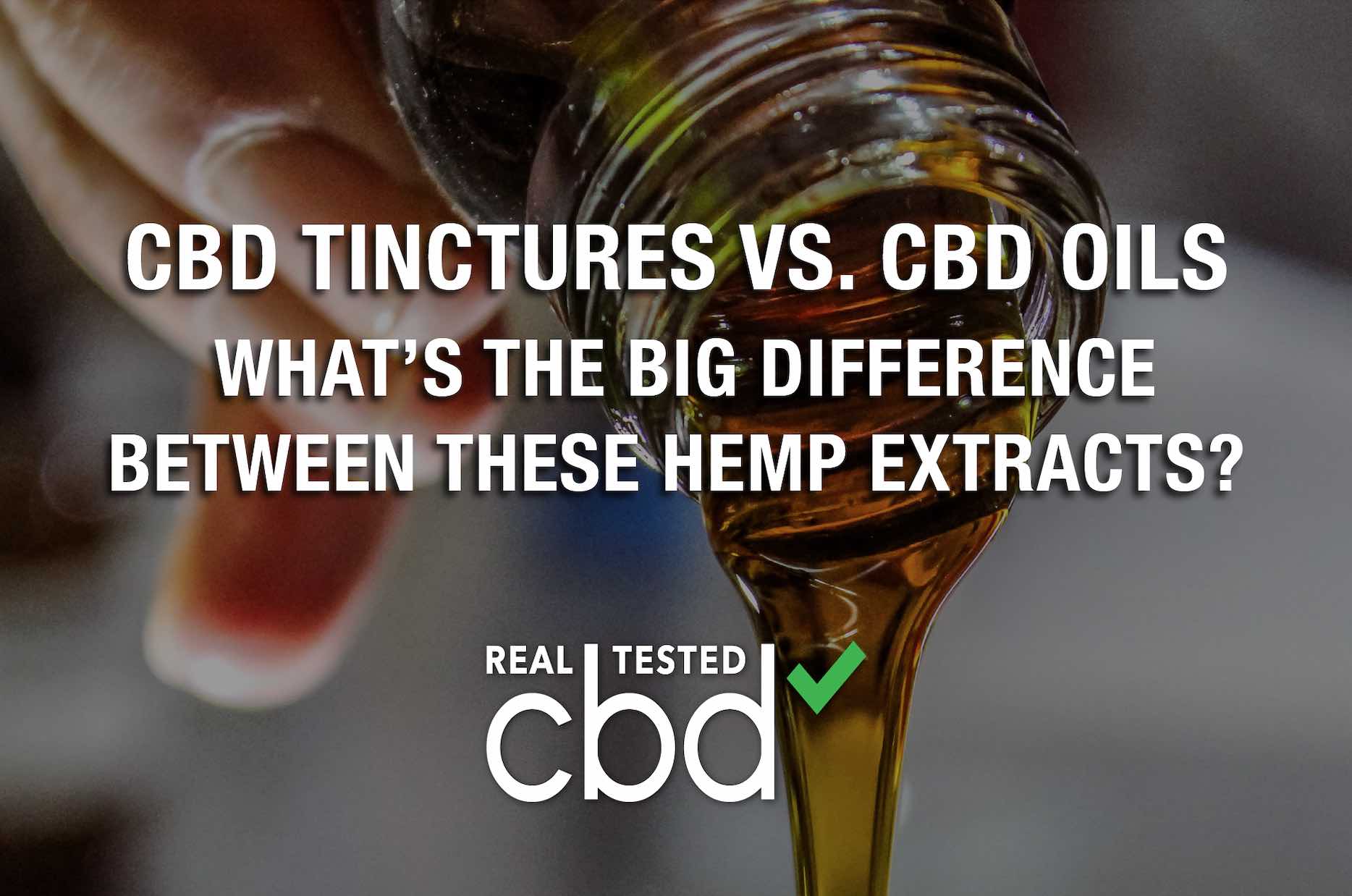
To be brutally honest, many self-professed “hemp experts” still mistakenly mix up basic terms like “CBD oil” and “CBD tincture.” In fact, you may have run across a few manufacturers who confusingly label their products “CBD tincture oils!” Although CBD oils and CBD tinctures look, taste, and feel virtually identical, they have many distinguishing features that customers should know about.
It may seem like we’re splitting hairs here, but there are a few key differences between these CBD oils and CBD tinctures. Knowing what separates these hemp extracts may help you make the right CBD purchase for your preferences.
How Are CBD Tinctures Different From CBD Oils?
The primary difference between CBD tinctures and CBD oils is the solvent extractors use. Only alcohol-extracted products qualify as a “tincture.” To make a CBD tincture, extractors usually suspend CBD hemp flowers in high-proof alcohol for a few weeks in a controlled environment and strain.
While modern tincture manufacturers typically add extra rounds of purification, making CBD tinctures is surprisingly low-tech. Interestingly, it’s believed many pre-prohibition cannabis doctors would use alcohol-based tinctures as their “go-to” remedy.
By contrast, CBD oil manufacturers should use non-alcohol-based extraction techniques. Although you could make CBD oils with harsh solvents like butane, many people in today’s hemp industry use supercritical CO2 extraction. Most labs also use a carefully calibrated combination of heat and pressure to get as much CBD out of their hemp flowers.
Another distinguishing feature in CBD oils is, well, its “oil.” After manufacturers successfully extract a vial of CBD, they usually mix it with a food-safe carrier oil like MCT, hemp, or avocado oil. Since CBD is a fat-soluble compound, it’s more readily available when paired with one of these fatty substances.
So, Are CBD Oils Better Than CBD Tinctures?
CBD oils are more prevalent in today’s hemp market, but it’s hard to say whether they’re “better” than CBD tinctures. Honestly, a key reason people enjoy CBD oils over CBD tinctures is taste. Due to their alcohol component, CBD tinctures tend to have harsh and bitter notes. While some manufacturers could mask these flavors with essential oils, CBD oils tend to offer a “smoother” CBD experience.
However, if you were to compare the potency levels of CBD oils vs. CBD tinctures, there’s not much of a difference. As long as the milligram count is the same, each of these products should have a comparable effect on your endocannabinoid system.
FYI: If you’re interested in making DIY CBD edibles and topicals, CBD oils tend to be the better option. Not only are CBD oils easier to hide in recipes, they won’t sting your skin!
Related: Click here to check out Real Tested CBD’s ‘Best CBD Oil’ category based on laboratory test results.
Is Your CBD Tincture Actually An “Oil?” — Double-Check Real Tested CBD’s Data!
Since CBD oil and CBD tinctures are similar, many companies don’t know how to distinguish them. It’s relatively common to find CBD oils mislabeled as CBD tinctures, or vice versa. The only way customers could verify their CBD tinctures is a “true tincture” is to scan official third-party lab tests and ingredients lists.
To make your life easier, Real Tested CBD compiles unbiased reviews of all the leading CBD and delta-8 companies. If you’re struggling to choose the perfect CBD oil (or tincture!), be sure to take advantage of our online resources.
Advertising disclosure: We may receive compensation for some of the links in our stories. Thank you for supporting LA Weekly and our advertisers.

